You, Me and the Big C: Our top 5 cancer myths
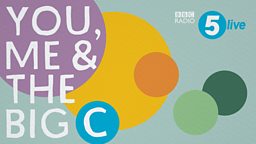
The women of the 'You, Me & the Big C' podcast are your BFF’s, your sisters, daughters and mothers. They are you… but with dodgier cells and they’re too busy living to worry about dying.
As well as their honest and raw podcast, which includes laughter along the way too, they will create a weekly top 5.
This week, the #YouMeBigC team are busting myths...

Here's a quick introduction (if you don't know the squad already):
R = Rachael Bland aka ‘Big C, Little Me' – Well known to BBC Radio 5 live and BBC audiences as a news presenter. Rachael has been in continuous treatment for recurrent breast cancer for a year.
D = Deborah James aka ‘Bowelbabe’ – Stage 4 Bowel Cancer doesn’t stop Deborah from getting to the party. This glamorous 35-year-old mum of two has even been known to drink champagne during chemo!
L = Lauren "Lolli" Mahon aka ‘Girl vs Cancer’ – Lolli was already a successful lifestyle blogger, so when cancer came calling at the age of 31, she styled it out by setting up a new community for young women with cancer.
Myth 1: You will always lose your hair
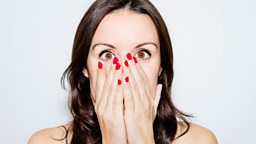
R: There are so many misconceptions, and that’s the whole point of You, Me and the Big C, to bust some of these myths about cancer.
When I was told I had stage four cancer, I didn’t say, “Oh my word, I’m going to die.” I said, “I’m going to lose my hair!"Deborah
D: Now this isn’t the obvious one, but it is obvious for me. When I was told I had stage four cancer, I didn’t say “Oh my word I’m going to die,” I said “I’m going to lose my hair”!
R: It was my first question as well.
D: The myth for me about cancer is that you don’t always lose your hair. It depends on the drugs, and I'm very lucky that I’ve kept my hair so far. If I change my drugs, I might lose my hair. But the myth is, not everybody with cancer has a bald head.
L: Yeah, it’s very, very true. There’s people walking round and you wouldn’t know. Someone sat next to you on the tube, full head of hair, full of cancer… You’d never know!
R: That’s like me. I’ve been to quite a lot of medical appointments where I’ve seen oncologists and surgeons who’ve looked at me and said “Have you had your chemo?” I’m like “Yeah”... It’s not that unusual. I use something called a cold cap, that has managed to save my hair.
L: I used the cold cap as well, but I still shed quite a lot. When I washed my hair for the first time (after treatment), it literally washed off me and it was terrifying. That moment of seeing your body just crumble. But saying that, I had quite a lot of hair. I got out of the shower and I just had a bald patch at the top of my head, but everything else was still there. The way the cold cap works, is that it sticks to some bits and not others. I found throughout my treatment I balded quite a lot at the top - I call it the Friar Tuck effect, a massive bald patch in the middle - everything else thinned out.
R: We should explain what a cold cap is actually...
L: It's like a jockey cap.
R: It’s a cap that you put on your head and it has a coolant running through it. It cools down your scalp, so it stops the chemotherapy drugs getting into the very outer layers of your hair follicles. It’s basically a rugby scrum cap that goes on over the top. It’s not a good look though is it?
L: Oh I rocked it mate!
Myth 2: Young people don’t tend to get cancer
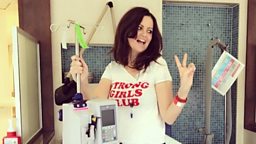
L: I’m passionate about this subject. For me, since the day I was diagnosed, I just feel like we don’t talk about this disease in an open, normal way. As a young person, it was never on my radar that I should be concerned about any symptoms, because you feel invincible. You're walking around like superman or superwoman, aren’t you?
As a young person, it was never on my radar that I should be concerned about any symptoms, because you feel invincible."Lolli
R: Thinking it’s never going to be you...
L: It’s never going to be you. It happens to other people, right? It does happen to young people. A high amount of young people get diagnosed. There’s like this weak spot in the middle - there are children’s cancer charities and teenage cancer charities and then the other cancer charities.
D: For old people?
L: Not old people, but it’s catered to a more advanced life stage, but there are different challenges for people in between, like from your twenties to forties.
D: For me, the biggest thing is, I have a cancer that apparently young people don’t get.
L: But they do!
D: And this is the problem... When you fall out of the age bracket. So the average person with bowel cancer is 69. A 69-year-old bloke.
R: And you are not he.
D: Exactly. So, I think that’s the problem when you don’t fit the mould of your cancer. People will say “Well you’re too young”. Actually I’m part of a campaign for bowel cancer called the ‘Never Too Young’ campaign, which is really important, because 2,500 people are diagnosed with bowel cancer under the age of 50 (in the UK each year) and yet it’s deemed an older person’s disease.
R: This is direct from Cancer Research UK, cancer no long a disease for the old - “One in 10 new cancer cases diagnosed are in people aged 25 to 49. There are twice as many women, than men, in this age group. Almost 23,000 women under the age of 50 are diagnosed with cancer.
L: I still find it crazy that in our schools we take young girls into rooms and we tell them about their periods and we show them how to put condoms on a banana, but we do not tell them how to check themselves for breast cancer.
Myth 3: All cancers are the same
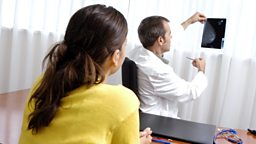
L: The thing is, there’s just so many different cancers and each of them have their own niches and changes and mutations.
They are all every different, but cancer is cancer. Regardless of the stage, it’s a scary word."Deborah
R: Treatments, different types of chemo and immunotherapy.
L: I found out my drug I’m about to have, to put me into early menopause, they actually give to prostate patients as well. So it’s all this stuff that crosses over and is so complex.
D: You become an expert in your own field don’t you?
L: Yeah!
R: Sometimes I think I could probably retrain to become an oncologist. Then I read into it a bit more deeply and see a scientific paper and think “Oh no… Oh… Perhaps not”.
L: I don’t know about you guys, but I’ve become really fascinated with other types of cancers. It’s rubbish that I have to talk to other people about having cancer, ‘cause no one should have it, but when I do talk to them about the different parts and the “This happened to me…” and “This drug does this…”, it’s incredible and I’m really fascinated. I’ve such a respect for medicine and the new things they’re finding all the time.
D: Different cancers present different challenges. So whether it’s a hormones driven problem or a poo driven problem or whatever, there are commonalities. So I think we can all relate to the emotional things, there are common symptoms that we all have to go through. They are all every different, but cancer is cancer. Regardless of the stage, it’s a scary word.
Myth 4: There's a hidden secret cure

R: A pet hate of all of ours. This myth that the big pharmaceutical companies are hiding the cure for cancer, but because they can’t monetise it - so the myth goes. I think it’s fair to say we’re all not really on board with that?
When you’re in a room and you get told you have cancer, you will take whatever is given to you."Lolli
L: No and I’ll tell you why. It tends to be the people who haven’t had cancer who have that point of view. I’ll tell you something now, when you’re in a room and you get told you have cancer, you will take whatever is given to you.
D: Absolutely.
L: And I know from the bottom of my heart, that I was treated with the best possible drugs they could have given me. Do both of you feel the same?
D: We’re both under the care of the Marsden. It’s an incredible place and I know there’s lots of incredibly places around the country that are doing their best. To be perfectly honest, I think oncologists are so passionate about what they’re doing, if there was a magic cure, they would do anything to give it to us. Let’s face it, we’re not playing with people’s lives here. When my kids rock up, when anyone’s kids rock up, you want them to stay alive. Yeah money comes into it and we know that’s a whole different conversation, but we’re humans at the end of the day.
L: I was treated on the NHS.
R: We all are. I was treated at the Christie hospital, which is another world leader in cancer treatment, with a lot of research going on. Part of my treatment has been there and also in my local hospital. The mere thought that all of these people, working in that sector, looking after people like us and trying to keep us alive, are actually at the same time are hiding a cure and going “Nah, I’m just going to let this mum die because we’re not going to make any money out of it” is just bonkers.
D: The problem is it’s a bit of postcode lottery in our country unfortunately. If you’re being treated in certain hospitals or you’re able to be treated in certain parts of the NHS, you have access to certain drugs and that’s what needs to change. It’s not as though there’s a big drug being hidden. It’s that the cost of the drugs and the cuts that are happening are really affecting people’s lives.
Myth 5: Cancer is a death sentence
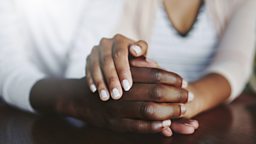
R: Cancer is not a death sentence.
Let’s be clear... Stage four incurable cancer is not the same as terminal cancer"Rachael
L: Yeah - it isn’t a death sentence. I’m talking from one point of view. I’ve been given the ‘all clear’, I say that with a little quote sign, but I think that people realise now that you can have stage four cancer that’s not necessarily terminal. Stage four you can live with your whole life and you can live a good life.
R: Let’s be clear about those two separate things. Stage four incurable cancer is not the same as terminal cancer.
D: It’s a very different thing. I’m in a situation where my aim is to kick the can as far down the road as I possibly can, until something comes up with a magic cure! I’m not going to lie, I’m going to say in certain circumstances - let’s face it oncologists don’t beat around the bush - they will have a very serious conversation with somebody and they'll say “We’ve done everything that we can do,” however, I don’t want people coming to the table saying “I’ve got cancer, I’m automatically going to die,” because I think you do jump to that. But even with stage four cancer, yes I’ve unfortunately lost people who’ve been diagnosed at the same time as me, with the same type of cancer, but then we probably all have haven’t we?
L: Yeah.
D: And we’ve seen that, but it’s not the end of it. I have hope. To be honest with you, I think I’m a little bit more… If you don’t have hope, then what have you got?
R: Yeah, you take away hope from a cancer patient at your peril.
L: Oh my God yes! Imagine!
Download and subscribe to the podcast
-
![]()
You, Me and the Big C
The 'You, Me & the Big C' podcast team - the coolest club you never want to be a part of… A candid look at cancer, with Steve Bland, Deborah James and Lauren Mahon.
More from You, Me and the Big C
-
![]()
Deborah’s story
“I have the poo cancer... There's nothing pink about my cancer, it's just brown!” - Deborah James, aka Bowel Babe, talks about her stage four bowel cancer diagnosis with Rachael and Lauren.
-
![]()
Lauren’s story
“Does that feel normal to you?” - Lauren Mahon, aka Girl vs Cancer, initially put tiredness down to her lifestyle, but went to a walk-in centre to get checked out. She shares her breast cancer diagnosis story with Rachael and Deborah.
-
![]()
Rachael’s story
"I had this weird soreness... it wasn't even in my breast" - Rachael Bland, aka Big C, Little Me, talks waiting rooms and breast cancer diagnosis with Deborah and Lauren.
-
![]()
Subscribe to the podcast!
A candid look at cancer, with Rachael Bland, Deborah James and Lauren Mahon. It's the coolest club you never want to be a part of…
-
![]()
Action line
A list of organisations that provide support and advice for those affected by cancer.







